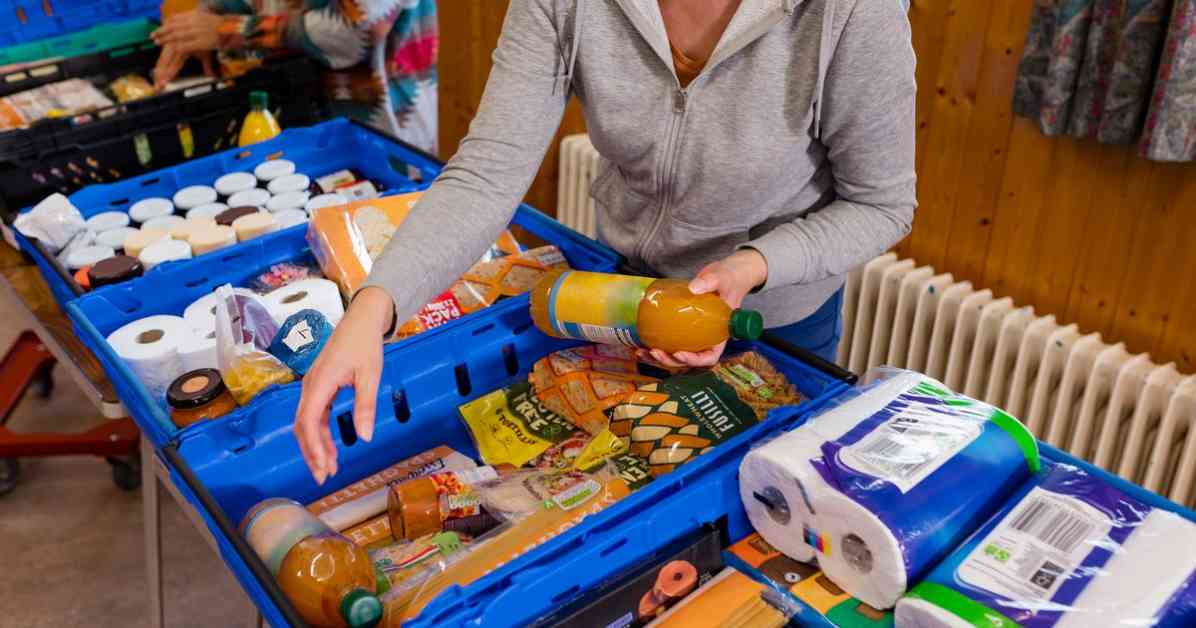A charity known as the Trussell network has reported a decrease in the number of food parcels being distributed at food banks in recent months. Between April and September, just over 1.4 million parcels were provided across the UK, which is around a 4% drop compared to the same period last year. Despite this slight decrease, Trussell emphasized that the number of people still experiencing hunger and hardship in the UK is “heartbreaking.”
In the six-month period from April, a total of 1,428,681 emergency food parcels were handed out by food banks within the Trussell community, down from 1,495,309 in the previous year. The number of parcels given to children also decreased from 542,915 to 507,721 during the same time frame. Additionally, 277,000 individuals, including both adults and children, were referred to food banks within the Trussell network for the first time.
Trussell suggested that the overall decrease in demand could be attributed to a “gradual slowdown in the extortionate price hikes” on food and bills that have been experienced in recent years, as well as the unfreezing of the Local Housing Allowance in April. This change brought support for private renters back in line with local rents, potentially alleviating some financial burdens.
Despite the decrease in demand, the number of food parcels distributed during the April-September period this year remains significantly higher than in 2019. Trussell highlighted that while all four nations in the UK saw a decline in demand, regional breakdowns indicated slight increases in areas such as the east of England and London.
Trussell’s chief executive, Emma Revie, expressed concern over the ongoing issue of hunger and hardship in the UK, stating that it is “heartbreaking” to witness so many individuals struggling to make ends meet. She called for the government to take more decisive action and invest in the social security system to address the root causes of food insecurity.
In response, a Government spokesperson acknowledged the unacceptable level of dependence on food banks and highlighted measures being taken to support struggling families, such as extending the Household Support Fund and increasing the National Living Wage. The government also mentioned initiatives to help households through Universal Credit deductions and the development of a Child Poverty Taskforce strategy to improve children’s well-being.
While there have been some positive steps taken to address food insecurity in the UK, Trussell and other organizations continue to advocate for more comprehensive solutions and a clear plan from the government to end hunger once and for all. The call for action to tackle the underlying issues contributing to food poverty remains a pressing issue that requires ongoing attention and support from all stakeholders involved.













